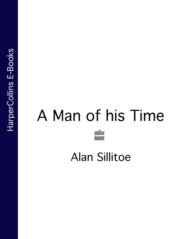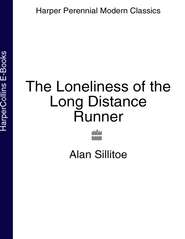По всем вопросам обращайтесь на: info@litportal.ru
(©) 2003-2024.
✖
The German Numbers Woman
Автор
Год написания книги
2018
Настройки чтения
Размер шрифта
Высота строк
Поля
If anyone asked where he came from he always answered ‘Shithouse-on-the-Ouse.’ You don’t have that sort of accent, they might reply, and he would tell them that’s because I was brought up properly, meaning mind your own business, which they usually did. Where Shithouse-on-the-Ouse was he had no idea, but it must have been a seaport somewhere because the old man had been a pastry cook on a liner, and they were always on the trek from one place to another.
His father had seen no greater success in life than for Richard to become an officer in the Merchant Service, but Richard could only get as close to that heavy level by going back to college and training to be a radio operator, with which the old man had to be satisfied, and more or less was, since it gave him officer status on board. Poor old sod thinks I’m still connected with it, and would walk off the end of Southport pier if he knew what I was up to.
His first job was on a trawler, but he had to give a hand with the catch now and again, and didn’t like the smell. Then he worked on a series of superannuated tramp steamers that took him around the world, each billet varying from poor to awful, nothing to do but call it experience. As second radio officer on tankers he enjoyed dodging pirates in the Far East. He carried a service revolver, but they were ordered to offer no resistance and just hand over cash, cigarettes and whisky to any cutthroats who got on the ship. He would often lie in wait, a one-man ambush, and regretted that no Lascar mob had ever thought to climb on board in the night, so that he could shoot them down.
He went from ship to ship, but didn’t get far enough, or quick enough, up the so-called ladder of success. For him there seemed to be no such thing. Maybe there was some defect in his character that others saw but he did not. He wasn’t unhappy. He could wait. Life up and down the Gulf Stream on his last ship was cushy enough, until one evening in Maracaibo, after they had loaded, someone approached him behind a shed on the quayside and offered five thousand pounds if he would take a bundle to an address in England. He hadn’t imagined it to contain soap, and that was a fact, but so much money never came amiss, and he got the packet through without being stopped, the first indication in his life that, while not cut out for honesty, he must have an honest face. He liked the bright light in his head, and the rhythmical buzzing that marked time with his legs as he went through the customs, an experience more intense than any to be got from a taste of whatever the parcel in his kit contained.
Honesty and naivety went together, he had to suppose, because when asked to do the same again he turned the proposal down. The young thug in dark glasses made it plain that if he didn’t take another consignment they would shop him for the first transgression. Richard let the man know he had only refused because he needed a hefty upping in the pay. The man swayed off to use the telephone, which brought a higher up from across the street. To them Richard played a normal hand, merely business sense, showing they dealt with someone hardening to the realities of the trade. Because he seemed no fool they paid half as much again. After the third trip he said let’s be cunning. Nobody’s luck lasts. Let’s find other ways, other routes. From then on he was in too far to either get out or want to.
He never knew whether being frightened came first or feeling guilty at taking drugs into the country. Success made the query irrelevant. Kids had no self control, or they wanted to see how close they could get to auto-destruct, or they needed to get drunk quicker and travel further out than was possible on half pints of bitter; or they had to blast a way with the dynamite of coke, crack, hash or acid to a part of themselves they wouldn’t understand or very much like when they got there – a method towards self knowledge which, once tried, or even more than twice tried, would stop them ever getting there by normal means such as jogging or swimming forty lengths in the swimming pool, or holding their breath for five minutes. Maybe they ought not to splash out their giros, dole, wages, pocket money, or fat salary from the bank, or corrupt handouts gained by public office, on something so disagreeably lethal. It was a free country, however, so forgive them, Lord, they know only too well what they do.
But there was no excuse for what he did, nevertheless, plenty of articles in the papers to put him right, should he need it, with such money rolling in. No use telling them anymore that he wanted out. He didn’t. If it wasn’t him it would be someone else, never a shortage to volunteer as a pack mule from the poppy fields. He was up to his neck in it, thousands every trip being good enough reason to carry on.
For the captain to call him to his cabin had been an out-of-the-ordinary command. He stood up from his table, all six feet four of him, as if he might come forward for the pleasure of throwing him overboard. ‘I want you off, as soon as your contract’s up, which it will be when we get to Southampton in two days.’ The matter was so important he even paused halfway through filling his pipe. ‘You can go to hell in your own way.’
Richard never knew how he had found out. A response wasn’t called for. The captain was a bastard, straight as they came. No beard or moustache for him, all clean shaven, and no damned nonsense either. One of those menacing peepholes glared as if finding him no better than a dung beetle that had crawled up a hawser to spatter his immaculate ship, too low to shop, though he might have given him to the hangman if he’d had sufficient proof, and if that was the regulation punishment for the crime.
‘You heard me. Out of my sight!’ in a tone suggesting he would bark at someone afterwards to mop the floor where his shoes had been placed – and who could fault him? Such a man wouldn’t act without a picture of Richard taking the parcel from his contact. He’d been shopped all right, maybe a couple of times, which finally set the captain onto him. ‘Clear out.’
A hard spark in the old man’s eye indicated relish for the play whilever he stood there. Better a yes sir, not even that, only an about turn and head on fire with chagrin at his stupidity at having been caught, wondering how many seamen and officers the captain had thrown off ships during his lifetime.
That was it. No more Merchant Service for him. The more occupations you had, the longer life seemed. There was a lot to learn, so he went into the game full time, and nobody had made the connection with him yet. Few got caught out of many who did it, and he soon gave good if not plenty of unique service, especially with his intercepted wireless material. The only way to get caught – apart from redhanded, which would put him down for twenty years if the consignment was a big one – was if whoever moved the pieces wanted to get rid of him, and put a few words in the right direction. But he would never be such a one, having built up his own intelligence file, and should they ever pull that kind of stunt he’d tear such a large part of the fabric down that the sound of ripping would be in their ears forevermore. He wasn’t the naive tourist recruited in Bangkok or Turkey. If and when he got out of the trade it would be under his own terms, and in safety, the only assurance on his side that he would keep his lips tight forever.
Called to the flat on Harley Street, where the crew assembled before a trip, Richard caught a glance of deference from Mr Waistcoat, looking like a prosperous surgeon who had made pots of money pulling the tonsils out of rich Arabs. Richard called him Mr Waistcoat because he wore such a garment of the fanciest design. Richard would like to ask where he got them, except he wouldn’t be seen dead wearing one. In any case, it was best to act as if you knew your place, which at crisis time would be a more rarified locality than such a ponce could ever know about.
Waistcoat sat on the mock-Jacobean Harrods sofa and, by continuing to manicure his nails and not inviting Richard to sit down, showed his origins as rather different to those which would have led him to becoming an eminent Harley Street surgeon. Neither did the timbre of his voice suggest as much, and Richard wondered how many years in jail had been necessary to make the transformation. He was no longer a person who would feel at ease weaving through the crowds on Oxford Street, but the sort to grow pettish if a Rolls wasn’t waiting to ferry him from place to place. He was one of those who looked as if he didn’t need to shave yet shaved twice a day. As for his age he could be anything between forty and fifty, forty because he had spent twenty years inside, and fifty because he had struck it rich too young, with the canny ruthlessness never to get caught. He put his well-cared-for hands in the pockets of his open navy-blue smoking jacket so that you couldn’t see how short his nails or how burnt his fingers were.
Either way, he could be tricky and dangerous to argue with, though Richard, strengthened by years in the navy, when he hadn’t given a toss for anyone since he felt indispensable and therefore untouchable, and because his work at the wireless gave him a certain mystery (and due also to the natural power of his self-esteem) felt no need to argue. He stood, waited, and listened out of habit as much as desire, an attitude in no way allowing Waistcoat to think that not being asked to sit down meant anything to him at all.
Even so, he wasn’t surprised, or didn’t show it, when a chair was pointed out to him. ‘Take a pew.’
He didn’t care to sit when Waistcoat stayed on his feet. ‘I’d rather stand. Naval habit.’
‘I like that.’ Waistcoat leaned against the mantel shelf. ‘I like it.’
He would have to like silence as well, till he explained what he wanted. The other man, whom Richard hadn’t so far met, sat four square on an upholstered chair, by a mahogany corner cupboard whose shelves were laden with old pewter mugs and plates. Across the room was an oak chest, and an oak cupboard above containing the same sort of pewter but behind glass. Against another wall was a dwarf chest of drawers with an oval mirror on its top, the whole place like an antiques clearing house, confirming his assumption that Waistcoat had done a course or two in collectables while banged up. He felt an impulse, couldn’t think why, to come in one day with a sledge hammer and take such relics to task, half of which were no doubt fakes, the only way to get confirmation as to what sort of person Waistcoat was.
A foolish fantasy, of course. Times were good, and the future impossible to imagine, so you hoped it would go on being good, which gave no alternative except to live in the present, and since that was the only way he had ever been able to live, it posed no great difficulty.
‘It’s a short boat ride he’s got in store for us this time,’ the other man said, ‘but it ain’t through the tunnel of love.’ Richard thought if that was the case he should size the man up, who introduced himself as Jack Cannister: long greasy hair tied back in a tail, a dark three-day growth, and a ring in his left ear – steel rather than gold. He was in his late thirties, and Richard wondered where he had been dredged up from, though he had worked with worse on the boat jobs so far done. The fairly lavish payment was for sailing with such people, as much as for the quantity of stuff he helped to deliver – whatever Waistcoat might think.
‘It’ll be a little boat,’ Waistcoat said.
Cannister gave a slit-mouthed laugh. ‘Saving on petrol, are we?’
‘Shut up, prick!’ Waistcoat snapped. ‘It’s a big job for us. Simple, though, if you listen to me.’ He opened the chest of drawers, and took out a chart of the Eastern Channel, spread it on a rosewood folding table in the middle of the room. ‘Your skipper will be waiting in Rye. And he won’t be bringing back baccy for the parson nor brandy for the squire. The goodies are scattered a bit more among the population these days, if they go thieving and mugging to pay for it.’
Richard waited for him to say that England this day expected every man to do his duty, but maybe he was saving it for another time. He walked to Victoria, liking the exercise, a hundred and twenty paces to the minute. Good to rattle the limbs and test the breath, knowing he could coax some of it back on the train going home.
The mission would be an easy one, Waistcoat had said, a piece of piss, though it didn’t do to think so till it was over. Three men on a thirty-two-foot boat sailed out of Rye Harbour, set for a weekend of pleasure in Boulogne, where they would pick up a consignment and come back as if on the last leg home. When the motor got them clear of the canalised river Cannister hoisted the sail, and the skipper, whose name was Scuddilaw, gave a course. The sea, fair to calm, made progress pleasant if not easy. Richard felt sufficient apprehension to know they would bring the job off, though the others, half tanked up even when coming on board, fetched a crate of lager and sent empty tins flying over the stern.
Visibility was soon a bit off centre, when they needed to cross two lanes of Channel shipping, but Richard found the beacons on the radio, separated Boulogne from the rest, and called a course to set them straight. Scuddilaw scoffed at his fancy position system from the Consol beacon in Norway, and said he didn’t need it. He could get there blindfold. ‘And as for beacons, you can stuff ‘em. Just keep your eyes skinned for the light. My glasses aren’t as good as they used to be.’
Cannister altered course towards the wake of a tanker without being told. The weather worsened, the boat chopping up and down, but at the entrance to Boulogne harbour, nearly four hours from Rye, Richard felt obliged to do things by the book and put on the courtesy act, which meant getting on deck to haul up the French tricolour on the starboard halyard. He thought the Jolly Roger would suit them better, but the rain was horizontal, and the rope tangled, became stuck halfway, so he brought it down again and went through a clumsy unthreading with wet hands. Scud called that he should wipe his arse on it, but he reduced time into slow motion and threw back the hood of his anorak so that he could at least see, till rope and flag slid up the mast without hindrance.
They found a berth in the yacht harbour and tied up. Cannister went loping into town for a few flagons of red wine, to drink while in port, as well as get fags and booze for their duty-free, while Richard and Scud sorted out the galley to produce a fry-up and brew tea. The French harbourman called to collect their dues. ‘We’ll have to stay up all night,’ Scud said when he’d gone. ‘They could bring the stuff any time, and we have to be on hand to stow it safe.’
Richard took the weather forecast in morse from Portishead, the paper on his knee, legs twisted at the chart table so that the others could get up and down. They didn’t like his news, that by tomorrow the wind would blow up to five or six, maybe on to gale. ‘Whatever it is, we’ve got to clear out.’
While steering outward bound across the harbour Scud was suddenly aware that an Enterprise cross-Channel ferry was coming straight at them – and not too far off, at that. Richard, cursing the French flag down, heard Cannister shout through the squall: ‘Wipe the wet off yer glasses, Skip. We’ve got a visitor at the door.’
The huge white building, all lit up and merry, came head on for the crunch, and Richard thought, well if this is how it’s got to end, so be it. The life jacket might just keep him afloat, but at least he could swim. People fishing at the end of the pier looked on, as well they might, laughing at such stupidity, or misfortune.
How they missed it he would never know – God protect me from such shipmates – but Scuddilaw jeered as the escarpment went by, comic-book passengers with big eyes and red hands looking at them through the murk – and as welcome a slice of luck as Richard had so far known.
Bracing themselves for the wash, the boat went up and down like a piece of balsa, though it was nothing to when open sea struck them beyond the harbour walls, a prelude to the leg back, which was the worst small-boat journey he’d ever put up with, eight hours of corkscrewing through high waves, when the next was always hungry enough to tip them over and under.
After four hours edging way from the French coast Scuddilaw set the engine going while Richard pulled down the jib and put two reefs in the main sail, but left it up to steady the yacht under power. They stayed by the wheel, leaving chaos below deck to look after itself: better to be in the open than go down and sick your guts up, which didn’t stop Cannister spewing before they were halfway across. Richard, who boasted guts of concrete, said it must have been the meal they had in town – when Scuddilaw went to the rail as well.
Under the lee of Dungeness the sea was quieter, all of them happy to reach the welcoming arms of the river mouth that had been in sight for over an hour. The tide took them neatly between the red on port and green on starboard, and suddenly into calm water. ‘We won’t stop for the customs,’ Scud said. ‘We’ll do a Lord Nelson, and go straight on into town. Let the bastards come for us.’
The neat concrete walls to either side, holding the mounds of shingle and sand beyond, channelled them reassuringly back into nanny England, though adrenalin beat through Richard at the thought of what they carried. Even before reaching the berth a man from the customs post followed them along the straight road on his low-powered motorbike.
Tying up was quick and efficient, slotting in without trouble. ‘Here he comes,’ Scud said. ‘Let me talk.’
‘Didn’t you see my signal? You should have stopped at the harbour,’ were his first tetchy words.
‘Come aboard. To tell you the truth, we didn’t. We’ve had one hell of a bloody crossing. I think none of us had eyes except for the berth. We’re just about done for. It took eight hours from Boulogne. Some pleasure trip that was. I thought it was going to be the last.’
He looked down into the saloon, and Richard could have laughed: a mass of dirty bedding, food, pots and pans, radio, charts and logbooks, all Swiss-rolled into a disgusting mess. ‘What do you have on board?’
‘Our duty-free’s somewhere down there,’ Scud told him.
‘I’ll get it.’ Cannister jumped up. ‘If you like. It’s in them plastic bags.’
The customs man was halfway down. Let him cut into it if he was in the mind to. He’d need a sharp knife. Going the rest of the way, he opened a cupboard or two, and came back up. He might have been suspicious, but couldn’t take the boat to pieces on his own. ‘Next time, stop at my signal.’
When the noise of his half-stroke put-put bike diminished along the road they brought out the bundles. Rain came warm and wetter than wet from seawards, but they had something to sing about as they took them under their coats to Cannister’s Land-Rover so that he could set off for London.
‘He’d never have found it, anyway,’ Scud said when he and Richard sat down to a meal in the galley after a quick tidying. ‘I’ve never known such weather for this time of year.’
‘Maybe that’s what saved us.’ The thought of surviving another such trip put him in a low mood, yet they were all the same, and none exactly alike. As the spaghetti and rich meat sauce went down, helped by two bottles of wine, he could only look forward to collecting his pay. Hard to know how Waistcoat had been so sure they would accomplish what he’d sent them to do in such foul weather.
‘Bad trip, I hear?’ Waistcoat said the next afternoon.
‘It was all right.’
‘Smoke, if you want to.’ He offered a cigar. ‘I’m glad you were with them. You might not think you’re essential, but you are. You keep them in order, just by being there.’










